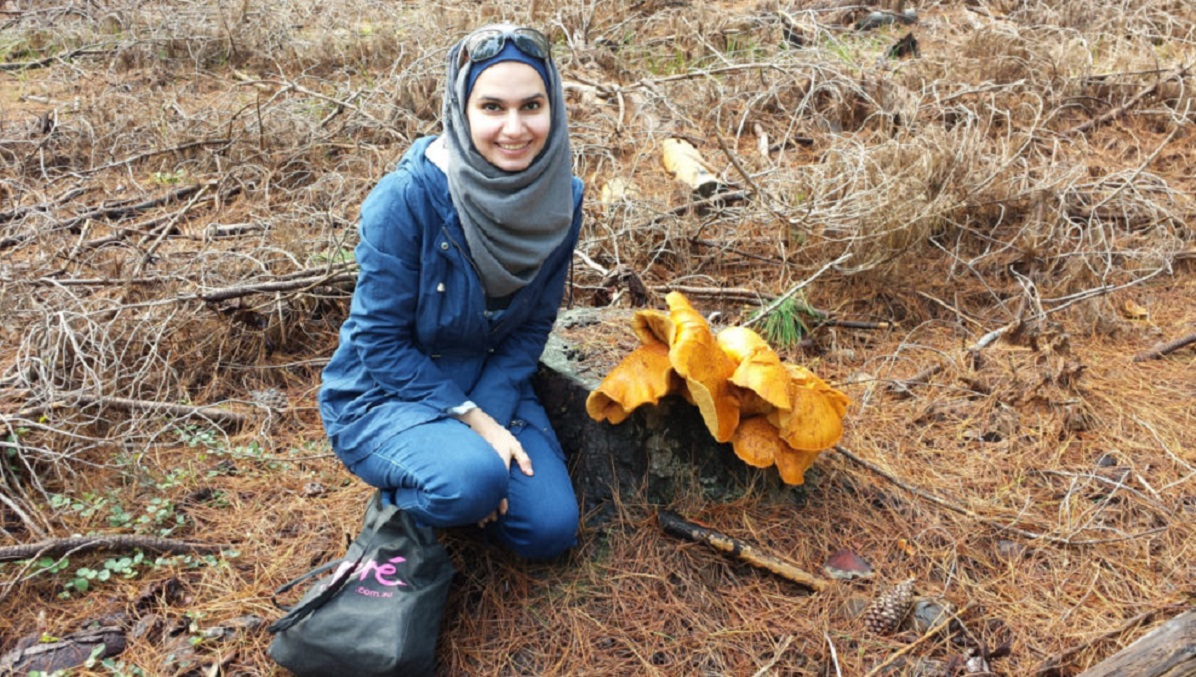
Flinders PhD candidate Samra Qaraghuli has won the AMP Amplify Ignite competition for 2018, after wowing judges with her research presentation on the potential for creating new families of antibiotics from macro-fungi.
AMP Amplify Ignite is one of Australia’s premier competitions providing researchers with the opportunity to pitch their idea to a corporate audience while working with Grant Thompson, and Jörn Sanda, professional performance coaches.
As more bacteria become immune to drug treatments, scientists around the world are looking to find new antibiotics to combat superbugs and potential life threatening infections.
Mrs Qaraghuli made the novel finding while screening wild mushrooms for antibiotic properties in South Australia’s Deep Creek and surrounding regions.
She competed against 17 PhD students from nine universities to make it through to this year’s final round in Sydney, winning a $5000 prize to go toward her research funding.
Originally from Iraq, Mrs Qaraghuli fell in love with science as a child and upon arriving in Australia took English classes for six months before starting her PhD in the College of Science and Engineering.
“Here in Australia, macro fungi are an untapped resource. We need to explore them more and more, because there’s so much in it,” she says.
“The mushrooms are supported by the environment, and there’s a wide variety of species of macro fungi in SA so it’s a really great resource to explore.”
Mrs Qaraghuli completed her thesis under the supervision of Emeritus Professor David Catcheside, Associate Professor Mike Perkins and Emeritus Professor Leigh Burgoyne.
Professor Catcheside says her discovery is linked to possible treatments against a wide range of bacterial infections.
“The compound that she discovered is a novel one, it looks like it might be possible to build a whole family of other compounds with antibiotic properties,” Professor Catcheside says.
“This is rather important for antibiotics because they have a relatively short lifetime, and this is because of the build-up of antibiotic resistance in the target bacteria so you need to keep on removing antibiotics that are overused and no longer useful and replace them with others.
“And we believe this compound, this antibiotic, shows promise of giving rise to such a family.”
Mrs Qaraghuli’s discovery was made from one of six fungal species collected and examined in the field and lab with the help of Adjunct Lecturer at Flinders Pam Catcheside, also a macro fungi expert and honorary research associate for the State Herbarium of South Australia.
The species showed antibacterial activity against golden staph infection, which can cause life-threatening illnesses such as pneumonia and blood poisoning.
“With antibiotics, the more we use them the less effective they become,” says Mrs Qaraghuli.
“Samra’s work shows that the larger fungi have invented ways to kill bacteria we don’t yet know, so scanning them for new compounds is an effective way to find new antibiotics,” says Professor Catcheside.
“These then provide the basis for making variants of them so we can keep ahead of the development of resistance.”

